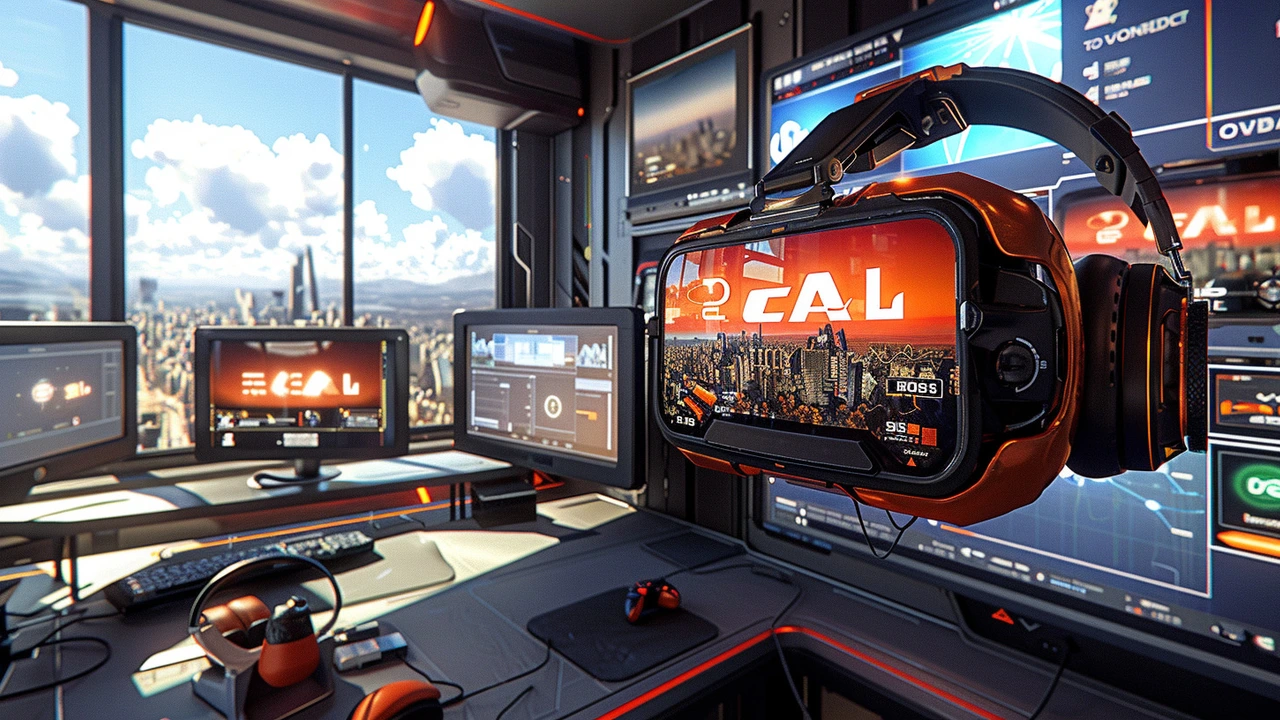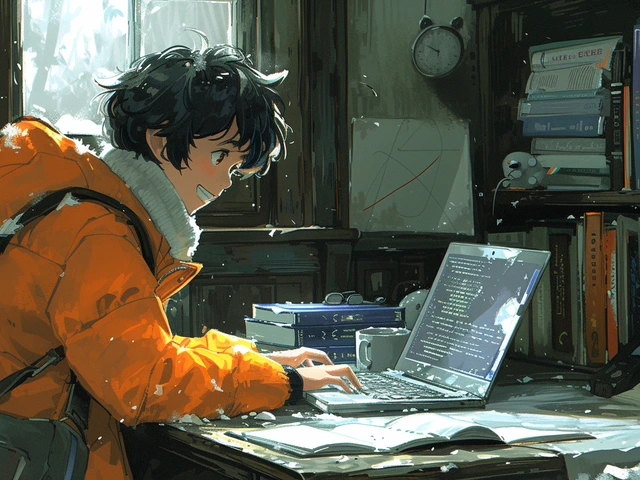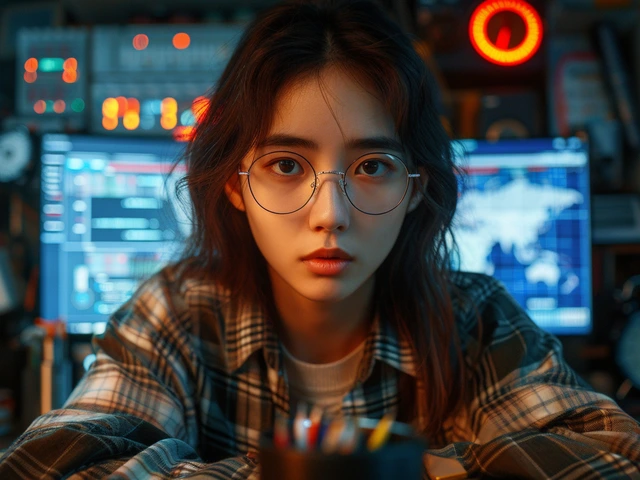Harnessing AI in Video Games: Revolutionizing Player Experiences and Development

Harnessing AI in Video Games: Revolutionizing Player Experiences and Development
Imagine a world where games adapt to your emotions, anticipate your choices, and evolve based on how you play. Artificial intelligence is making this a reality in the gaming industry, transforming how games are created and played. This article dives into the exciting ways AI is being integrated into the gaming world, enhancing everything from player interaction to complex storytelling.
Games today aren't just programmed; they're taught to think. Developers use AI to create more realistic, responsive environments that challenge and engage players in ways previously not possible. But it's not just about making games harder or more realistic. It's about crafting deeply personal experiences that resonate with players on an emotional level.
- AI and Player Experience
- Speeding Up Game Development
- AI in Game Storytelling
- Ethical Considerations
- Future Possibilities
AI and Player Experience
The surge of artificial intelligence in the gaming sector is not just about augmenting graphics or streamlining processes; it’s primarily focused on revolutionizing player engagement and redefining game narratives. Historically, gaming experiences were static, limited by the programming and scripting laid out by developers during the game’s creation. However, with the advent of AI, games are now able to offer dynamic and evolving experiences tailored to individual players. AI's capability to analyze player behavior and adapt game difficulty or storytelling accordingly means that every gaming session can be uniquely challenging and engaging.
For instance, in action games, AI can analyze a player’s tactics and adjust the enemy strategies in real-time, preventing players from exploiting repetitive patterns and ensuring a continuously stimulating experience. Similarly, in role-playing games (RPGs), AI-driven non-player characters (NPCs) can deliver more lifelike and reactive interactions, fostering a deeper connection to the game’s world. The AI systems can learn from the player's choices, and evolve the storyline to reflect those decisions, creating a deeply personal narrative arc that might be different for every player.
Said adaptive storytelling is one of the most fascinating aspects of AI in gaming. The idea that a game can craft a story based on who is playing it is a transformative step forward in game development. This adaptiveness can potentially lead to highly emotional and memorable player experiences that resonate well beyond the game itself. Imagine a game that remembers your past choices and subtly shapes its narrative to challenge your moral compass or reward your consistency.
"AI is the future of personalized gaming, where experiences are tailored not just to thousands of players, but uniquely to every single player," remarked a leading game developer.
Moreover, the influence of AI isn't limited to just personalization and narrative depth. It also improves accessibility, enabling players with different abilities to enjoy gaming in ways that were previously difficult or impossible. Features such as dynamic difficulty adjustments, automatic aiming, or customized control settings are all examples of how AI is making gaming more inclusive.
As we look to the future, the intersection of AI and player interaction promises even greater advancements. With technologies like machine learning and neural networks becoming more sophisticated, the potential for creating more nuanced and complex gaming environments is boundless. These developments could pave the way for games that not only entertain but also adapt to and assist in the development of cognitive and social skills.
Speeding Up Game Development
The integration of AI into game development is not just revolutionizing player experiences, but it is also significantly speeding up the development process itself. Traditionally, creating game environments, character behaviors, and scenarios involved extensive manual work. Now, AI tools streamline much of this, automating repetitive tasks and helping developers focus on more creative aspects of game design. AI contributes to various stages of development, from initial concept art to final testing phases, enhancing efficiency and reducing time-to-market.
For instance, procedural content generation powered by AI allows for the creation of vast, complex worlds with minimal human input. These algorithms can generate terrain, weather patterns, and even entire ecosystems based on set rules and parameters. This not only saves countless hours of manual labor but also adds elements of unpredictability and uniqueness to game worlds, making each player's experience distinct. Atmospheric elements, landscape variabilities, and even NPC interactions are now dynamically enhanced by AI, which learns and evolves based on player interactions.
Another area where AI is making a significant impact is in playtesting. Traditional playtesting requires a lot of resources, with human testers playing early versions of games to identify bugs and gameplay issues. AI-driven testing systems can simulate thousands of hours of gameplay continuously, spotting potential issues much faster than human testers could. This has a profound effect on the development cycle, significantly reducing the overall testing phase and helping push games to the market faster with fewer initial issues.
AI is also instrumental in the realm of game aesthetics, particularly in animation and graphics design. AI algorithms are capable of generating high-fidelity textures and environments, leading to more immersive gaming experiences. This automation extends to character animation, where AI-based tools help create realistic movements that are both resource-efficient and life-like, reducing the need for extensive rigs and manual keyframing by animators.
The advantages of AI in speeding up game development do not end with just efficiency and realism. They also offer scalability, making it feasible for smaller teams to undertake ambitious projects. Deep learning models help optimize game engine performance, predict player behavior, and manage in-game economies, effectively allowing developers to create richer, more complex games without proportionately increasing the workforce.
AI in Game Storytelling
With the advent of advanced artificial intelligence, the narrative structure of video games is undergoing a significant transformation. No longer are storylines static, predictable paths. Instead, AI technologies enable dynamic storylines that can alter based on player decisions, creating a uniquely personalized gaming experience. This means that AI doesn't just control non-player characters (NPCs) or enemies; it shapes the very core of the narrative, leading to a multitude of possible endings and story arcs that are contingent on user interactions.
For instance, AI can generate dialogues in real-time, allowing characters to respond to players in a more human-like and context-sensitive manner. This capability brings a new depth to gaming, making every conversation and choice feel impactful and meaningful. It’s not just about picking the right options from a menu; it’s about interacting with the game world in a way that feels alive and responsive. Game developers are leveraging this technology to craft stories that adapt and evolve, offering a richer, more immersive experience.
Another key advantage of AI in storytelling is its ability to analyze player behavior and preferences. This data-driven approach allows games to adapt their narrative to better suit the emotional and psychological state of the player, enhancing engagement and satisfaction. Picture a scenario where a game detects a player’s preference for stealth over direct confrontation and subtly shifts its storyline to feature more espionage and intrigue. Such tailored experiences are becoming a reality with AI.
Moreover, this integration of AI pushes developers to think differently about narrative structures. Rather than creating a linear story, writers and designers approach games more like a series of complex, branching narratives. This can lead to games that include a wider range of character arcs, thematic explorations, and moral dilemmas, all modulated by the player's actions. This not only makes games more interesting but also endlessly replayable, as each playthrough provides a different story based on the decisions made.
One particularly notable instance of AI-driven storytelling can be seen in role-playing games (RPGs) where character development and story progression are key elements. AI's ability to generate and manage complex databases of character histories, player decisions, and potential plot outcomes allows for an unprecedented depth of narrative possibility. The result is a game world that feels much more alive and interconnected, where actions have real consequences that resonate throughout the virtual ecosystem.
Ethical Considerations
The integration of AI in the gaming industry raises significant ethical questions that demand close scrutiny. As developers harness AI to create more immersive and realistic game worlds, they must also consider the implications of their designs on the psychological state and decision-making processes of players. One of the pressing issues is the potential for AI to manipulate player choices or foster addictive behaviors. The line between enhancing engagement and exploiting vulnerabilities can often blur, making it crucial for developers to establish ethical guidelines that prioritize the well-being of players.
Moreover, the data used to train these AI systems typically comes from players themselves, raising concerns about privacy and consent. Without transparent policies and assurances of data security, players might be wary of sharing their information, impacting the effectiveness of AI systems intended to enhance their gaming experience. The ethical use of this information must always be secured by strict adherence to data protection laws and a strong ethical framework established by the gaming company itself. This ensures that personal data is used appropriately and with the full consent of those it belongs to.
An additional ethical quandary is the representation of AI within games. Artificial intelligence often controls characters that players interact with; hence there is a responsibility on developers to avoid perpetuating stereotypes or encouraging harmful behaviors through these digital avatars. The nuances of such representations and their impacts can be profound, shaping players' perceptions of AI in the broader world. Developers are encouraged to conscientize their AI designs, reflecting diverse perspectives and fostering inclusivity in their virtual worlds.
When discussing ethical AI use in gaming, it's relevant to consider the insights of industry leaders.
In a recent keynote, a noted game developer emphasized, 'As we advance technologically, our moral compass must evolve as well; every feature, every line of code should be examined through the lens of its impact on the player.'Thus, while AI in gaming presents extraordinary opportunities for creating dynamic and adaptive experiences, it also requires a balanced approach to ensure these innovations are always in service of the player's best interests.
Future Possibilities
As we cast our eyes toward the horizon of gaming, the fusion of advanced artificial intelligence with interactive entertainment promises to break new ground in both how games are designed and experienced. With the rapid advancements in AI technology, game developers are equipped with tools that could enable games to customize entire narratives and gameplay mechanics in real-time, based on player behavior and preferences. This personalized approach could create deeply immersive worlds that adapt uniquely for each player, offering a gaming experience that is truly one of a kind.
Imagine a future where AI could analyze your gameplay style and adapt the game environment accordingly. For instance, if a player prefers stealth tactics, the game could automatically introduce more complex stealth missions, enrich gameplay strategies, and even adjust the storyline to feature more espionage. This personalized adjustment goes beyond difficulty settings; it creates a unique narrative journey for each player, enhancing the replay value exponentially.
Another exciting prospect is the potential for AI-driven virtual reality (VR) and augmented reality (AR) experiences where the game reacts not only to your decisions but also to your physical environment. These technologies could converge to provide a seamless integration of game and reality, offering scenarios and challenges that blur the lines between the virtual and the real world. The application of AI here could lead to the formation of more natural and intuitive human-machine interactions, revolutionizing the standard gaming setup.
Moreover, the influence of AI in gaming could extend beyond entertainment, serving educational and training purposes. Complex simulations enabled by AI can be used in fields like healthcare, engineering, and education, providing professionals and students with a risk-free, responsive environment to hone their skills and expand their knowledge through gamification.
While these possibilities are currently at the frontier of gaming technology, continuous developments in AI could soon make them everyday features. The challenges for developers will be to ensure these AI systems are not only effective but also operate within ethical guidelines that protect user data and promote positive gaming experiences. As we move forward, the collaboration between AI experts and creative minds in gaming will be crucial to unlocking these futuristic gaming realms that could offer unprecedented levels of engagement and personalization.
About
CH Tech Development is a premier resource for the latest updates and insights in the world of technology development. We provide extensive information, articles, and guides on cutting-edge technological advancements. Explore our site to empower your knowledge about the dynamic field of tech development.
Latest Posts


Essential Coding Tips for Aspiring DevOps Engineers: A Comprehensive Guide
By Theodore Worth Mar 28, 2024

Maximizing Efficiency with Code Debugging
By Silas Hawthorne Jul 26, 2023

Coding for AI: Pioneering Strategies in Tech Development
By Larissa Bentley Apr 25, 2024

Write a comment